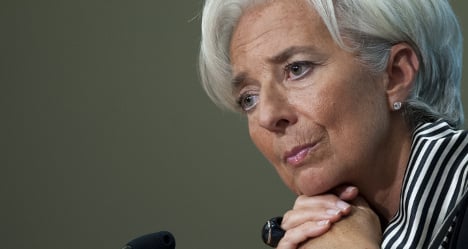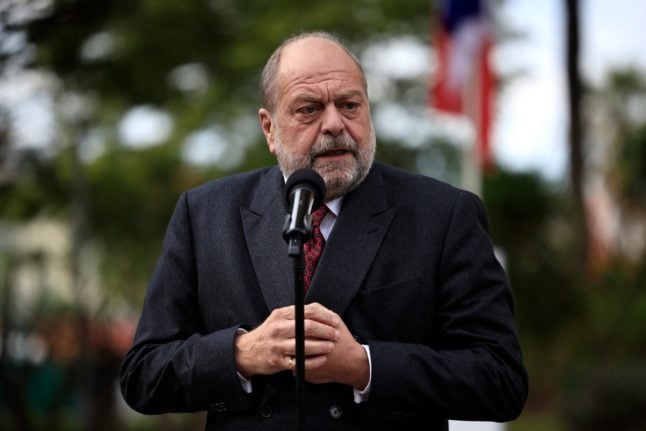IMF chief Christine Lagarde is to be grilled by a special court investigating suspected corruption dating from her time as French finance minister, her lawyer said Thursday.
Lagarde, who took over at the International Monetary Fund in 2011 when the previous boss Dominique Strauss-Kahn stepped down over a sex scandal, has been ordered to appear before the court at the end of May.
She will have to answer allegations that she acted improperly in the handling of a financial dispute that resulted in around €400 million being paid by the state to disgraced tycoon Bernard Tapie.
Prosecutors working for the Court of Justice of the Republic (CJR) – a body established to try cases of ministerial misconduct – suspect Tapie received favourable treatment in return for supporting Lagarde's then boss, Nicolas Sarkozy, in the 2007 and 2012 presidential elections.
They have described Lagarde's handling of the case as "questionable" and suggested she was partly responsible for "numerous anomalies and irregularities" which could lead to charges for complicity in fraud and misappropriation of public funds.
Lagarde's Paris home was raided by CJR officials last month but she has not yet been charged with any crime. The IMF has stood by her and her lawyer insisted she would be cleared of any wrongdoing.
"As has been expected for several months, the court wishes to question Madame Lagarde," her lawyer, Yves Repiquet, told AFP. "A hearing will be held at the end of May.
"Mme Lagarde will finally have the opportunity to provide the court with explanations and clarifications that will exonerate her of any criminal responsibility."
The investigation is centred on Lagarde's 2007 decision to ask a panel of judges to arbitrate in a dispute between Tapie and Credit Lyonnais – the collapsed, partly state-owned bank – over his 1993 sale of sports group Adidas.
The arbitration resulted in the payout to Tapie, a former politician and businessman who went to prison for match-fixing during his time as president of France's biggest football club, Olympique Marseille.



 Please whitelist us to continue reading.
Please whitelist us to continue reading.
Member comments